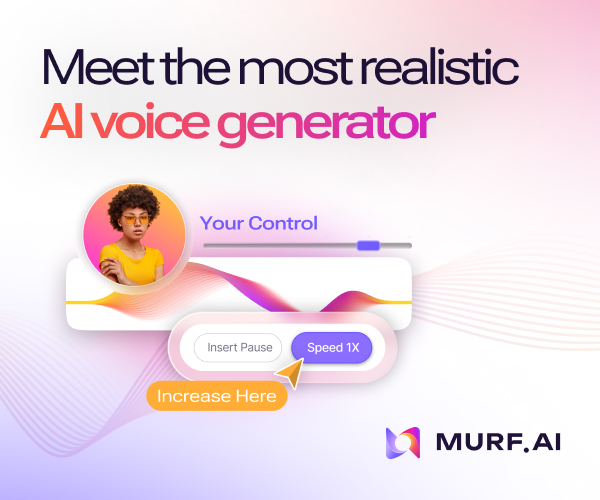AI is everywhere—writing content, analyzing data, automating customer service, and even making hiring decisions. But here’s the big question: Just because businesses can use AI for everything, should they?

AI is a game-changer, but it also comes with ethical dilemmas. Companies need to find the sweet spot between maximizing profits and maintaining ethical responsibility.
Why AI Ethics Matter More Than Ever
AI is no longer a futuristic concept—it’s a $196.6 billion global market (Statista, 2023) transforming industries. But with great power comes great responsibility. A 2022 Accenture study revealed that 62% of consumers want companies to transparently explain how their AI systems work. Meanwhile, Gartner predicts that by 2024, public backlash against unethical AI practices will force 30% of governments to enact stricter regulations.
Ignoring ethics isn’t just risky—it’s expensive. For instance, biased hiring algorithms could lead to lawsuits, while opaque AI decision-making erodes consumer trust. Conversely, businesses that embed ethics into their AI strategy gain a competitive edge.
Principles of Responsible AI Use
To navigate the AI landscape responsibly, businesses should adopt these core principles:
- Transparency
AI systems should be explainable. When Spotify uses AI to curate playlists, it clarifies that recommendations are based on listening history—a simple step that builds user trust. Tools like IBM’s AI Fairness 360 help developers audit algorithms for bias, ensuring decisions align with company values. - Fairness
AI must avoid reinforcing societal biases. In 2019, Amazon scrapped a recruiting tool that downgraded resumes containing the word “women’s.” Regular bias audits and diverse training data can prevent such pitfalls. - Privacy Protection
With 68% of consumers worrying about data privacy (Cisco, 2022), anonymizing data and complying with regulations like GDPR is critical. In 2023, Meta faced a $1.3 billion fine for mishandling EU user data—a stark reminder of the cost of negligence. - Accountability
Assign clear responsibility for AI outcomes. Microsoft’s AI Ethics Board oversees projects to ensure alignment with ethical standards, setting a benchmark for accountability.
Case Studies: Ethical AI in Action
1. Microsoft’s AI for Good Initiative
Microsoft’s $165 million program uses AI to tackle global challenges like climate change and healthcare disparities. Their AI-powered “FarmBeats” tool helps farmers optimize crop yields sustainably, proving that ethical AI can drive social impact and open new markets.
2. Lemonade’s Transparent Claims Process
Insurtech startup Lemonade uses AI to process claims in seconds. By publishing an annual transparency report detailing AI decisions, they’ve achieved a 40% customer growth rate (2022), showing honesty fuels loyalty.
3. Retail Giant’s Bias-Free Pricing
A major retailer (name withheld) implemented AI-driven dynamic pricing but added fairness checks to prevent discrimination. Result? A 15% revenue boost without alienating low-income shoppers.
So, how do you use AI to grow your business without crossing ethical lines? Let’s break it down.
Also read: The Future of AI in Online Marketing: What Every Entrepreneur Must Know
AI and Job Automation: Replacing or Empowering Humans?
One of the biggest concerns with AI is job loss. Will AI take over human jobs? Well, yes and no.
- AI automates repetitive tasks, but it also creates new opportunities.
- Instead of replacing humans, smart businesses use AI to enhance productivity.
- The key is upskilling employees, so they can work with AI instead of being replaced by it.
Example: A marketing agency using AI for data analysis and content creation can train employees to focus on strategy, creativity, and human connection—things AI still can’t do well.
AI and Data Privacy: Using Customer Data the Right Way
Let’s be honest—AI thrives on data. But how companies collect, store, and use data can make or break trust.
- Be transparent about what data is being collected and how it’s used.
- Use AI to personalize experiences, not manipulate decisions.
- Ensure strong cybersecurity measures to prevent breaches.
Example: Instead of secretly tracking users, ethical businesses ask for consent and use AI to improve customer experience, not just maximize profits.
Also read: How AI is Disrupting Online Business: A Beginner’s Guide to Making Money with AI
AI Bias: Fairness in Decision-Making
AI is only as fair as the data it’s trained on. If the data is biased, the AI will be too.
- AI in hiring? It can accidentally favor certain demographics over others.
- AI in finance? It might deny loans to certain groups due to flawed historical data.
- AI in healthcare? It could prioritize one set of patients over another based on past biases.
The solution? Train AI with diverse, unbiased data and regularly audit its decisions. Businesses that take AI ethics seriously win customer trust and avoid PR disasters.
Deepfakes and Misinformation: The Dark Side of AI
AI can create realistic fake images, videos, and articles—which is both impressive and scary.
- Misinformation spreads fast, and AI-generated content makes it worse.
- Brands need to verify sources, fact-check AI-generated content, and avoid deceptive marketing.
- Ethical AI use means enhancing credibility, not destroying it.
Example: News outlets using AI for reporting should combine AI-generated insights with human fact-checking to prevent false narratives.
Balancing Profit and Ethics
Ethical AI isn’t a cost—it’s an investment. A 2023 Capgemini report found that 85% of consumers are more likely to trust companies with ethical AI practices, and 79% would pay a premium for their products. Moreover, Deloitte found businesses adopting ethical AI saw 48% higher revenue growth over three years compared to peers.
Key Strategies:
- Start Small: Pilot ethical AI in low-risk areas, like customer service.
- Educate Teams: Train employees on ethical frameworks and tools.
- Collaborate: Partner with NGOs or academia to stay ahead of regulations.
5 Steps to Implement Ethical AI
- Audit Existing Systems
Identify bias, privacy gaps, or transparency issues in current AI models. - Develop Ethical Guidelines
Align with global standards like the EU’s AI Act or OECD’s AI Principles. - Invest in Diverse Teams
McKinsey reports diverse teams are 35% more likely to achieve above-average profitability. - Monitor Continuously
Use real-time dashboards to track AI performance and ethics metrics. - Engage Stakeholders
Involve customers, employees, and regulators in AI governance discussions.
The Right Way to Profit from AI
AI can increase revenue, but ethical businesses focus on long-term trust over short-term gains.
- Use AI to improve customer experiences, not just cut costs.
- Be honest about AI’s role in your business (e.g., AI-generated chat support).
- Regularly update AI systems to align with ethical standards.
The Future is Ethical—and Profitable
AI’s potential is limitless, but its success hinges on trust. By embracing ethical practices, businesses can avoid backlash, attract conscious consumers, and future-proof their operations. As AI pioneer Andrew Ng aptly said, *“AI is the new electricity”—*and when harnessed responsibly, it can light the way to a brighter, more equitable future.
Ready to Lead the Ethical AI Revolution? Start today by auditing your AI systems and committing to transparency. Your customers—and your bottom line—will thank you.
Have questions about implementing ethical AI? Share your thoughts below or tag a business leader who needs to read this! Let’s build a future where technology serves humanity—responsibly.








